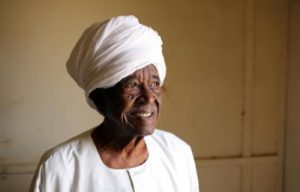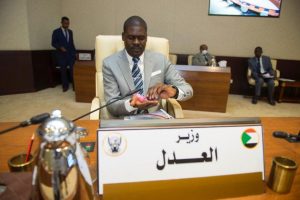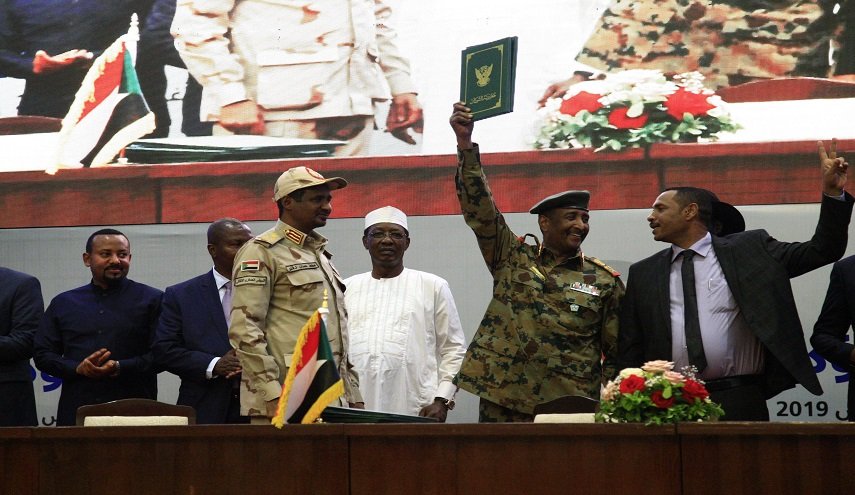The rocky road to Sudan’s elections
28 February 2021
With the Juba Peace Agreement signed and a new cabinet sworn in under Sudan’s transitional government period, the country is expected to hold general elections. But enthusiasm towards this democratic process appear subdued, sources across Sudan told Ayin, due to on-going instability during the transitional period and lack of electoral preparations.
“Elections are the end goal of this transitional period, and therefore, this transition needs to succeed, this period should pave the way by making reforms,” says Abdul Moneim Ali, a teacher from Al-Azhari, Khartoum, and a member of the resistance committee of Abu Adam neighbourhood. The youth-led resistance committees are designed to uphold Sudan’s revolution after the toppling of former dictator Omar al-Bashir in April 2019.
A successful transitional period requires a united national front, says veteran journalist and political analyst Mahjoub Mohamed Salih, but the current leaders inherited a dire economy and ethnically divided country.
In some states, tribal divisions have increased during the transitional period despite efforts made by the centre. According to Port Sudan resident Maaza Abdullah, the security situation has deteriorated further in the eastern commercial city due to tribal conflicts.
“The biggest problem is the lack of laws, guidelines and censorship from official bodies that are supposed to control and regulate,” Sahar Al-Jazouli, a member of Abu Adam resistance committee told Ayin. “There are many other issues besides the economy; the military needs to be one united front and not several militias. Also, governmental and military institutions need to abide by laws and regulations,” he added.

Challenged Transition
Every time Sudan has experienced revolution – it has been cut short by military dictatorships, leaving the country in a cycle of unmet democratic reform. “The only way to emerge from this cycle is by establishing a strong democratic rule,” Salih added, “that requires strong political parties which we do not have, so there must be a wide-reaching alliance –free from extremism.” The veteran journalist says the new cabinet should have provided a clear program and vision before its formation, rather than being built via power-sharing deals brokered from an incomplete peace agreement. Since the Juba Agreement does not include Sudan’s two largest rebel movements, comprehensive peace and political stability are yet to be achieved, he said.
“This is not the first failed transitional period; the previous transitions lead in elections that resulted in weak systems that fell soon afterwards –we don’t want to repeat that. We want this transition to work and bring a strong and sustainable democracy to Sudan.”
Another key gap in Sudan’s current power-sharing government, according to Al-Jazouli, is the exclusion of youth participation. The lack of youth from any decision-making may leave the country in a similar governmental structure as that found under former dictator Omar al-Bashir where youth were left on the side-lines, she said.
“We are all as youth waiting for the [formation of] parliament even though there are those who are trying to push youth aside. We need representation –we can’t keep relying on protests as the only means, we need to go to the next step, which is represented in parliament.”

Poor Preparedness
Earlier this month, the Sudanese Ministry of Justice signed a Memorandum of Understanding with the International Foundation for Electoral Systems (IFES), an organisation that provides technical assistance and research to support democratic electoral processes. IFES declared its support to Sudan’s elections through a programme entitled, “Improving Electoral and Political Process for Change in Sudan”.
An official affiliated to IFES confided with Ayin that elections preparations, despite their complexities, are non-existent. “There is no planning by the government for the elections –even [an electoral] law to be set by the ministry of justice is not reviewed. This shows a lack of political awareness, as all stakeholders know that elections are not a simple matter, but a long process and a very expensive one.”
“There’s a slight hope for real change, but I also a fear that the military will hijack the elections and take over. I am scared that we may become another Egypt.”
— Igbal Mahjoub, Port Sudan
Ambiguous Expectations
The general sense of frustration amidst the Sudanese public has dampened any enthusiasm towards the upcoming elections. “Elections might end up being transparent, but people lost the spirit of the revolution and, in many are no longer hopeful for change,” says Maaza Abdullah. “For me personally, I do not look forward to [future elections] as there are no clear plans and the economy has collapsed. This lack of guidelines and daily living struggle makes one thinks that even an honest election will not lead to true reform,” she added. Igbal Mahjoub, also from Port Sudan, is somewhat more optimistic but fears sabotage. “There’s a slight hope for real change, but also a fear that the military will hijack the elections and take over,” Mahjoub says. “I am scared that we may become another Egypt whereby the military takes over, and they are trying to do so as most of the vital service companies are controlled by them.”
The IFES affiliate is equally cautious. “I think people – including myself – are not very enthusiastic about the elections. People are starving and struggling with no clear future or assurance –they are questioning the ability of political parties to lead the transitional period—and questioning the validity of electing any of these parties.”
Salih thinks that people demanded a transitional period of four years for the parties to rebuild themselves – but this time was used to seek power-sharing, governance opportunities and unlawful competition.
“Many developments following the revolution caused disappointment as people see that this government has failed them. This might lead to a lack of interest to participate in the elections, but people who lead the revolution will be the keenest to participate in the elections to achieve the democratic transformation they have hoped for,” he said.


